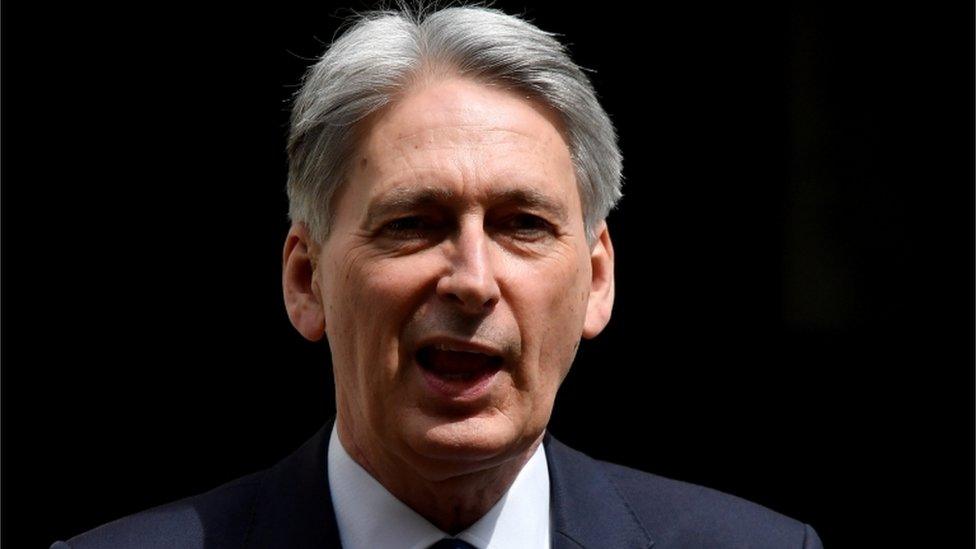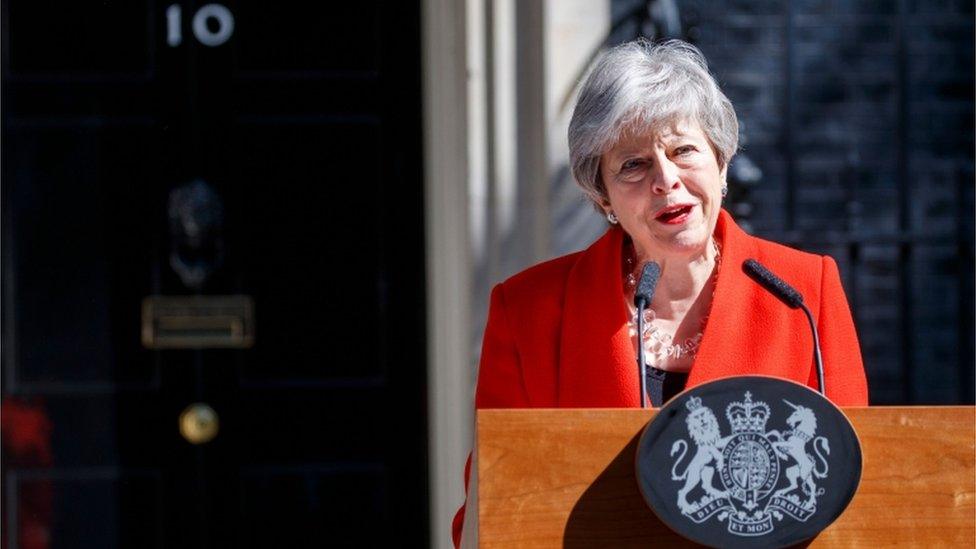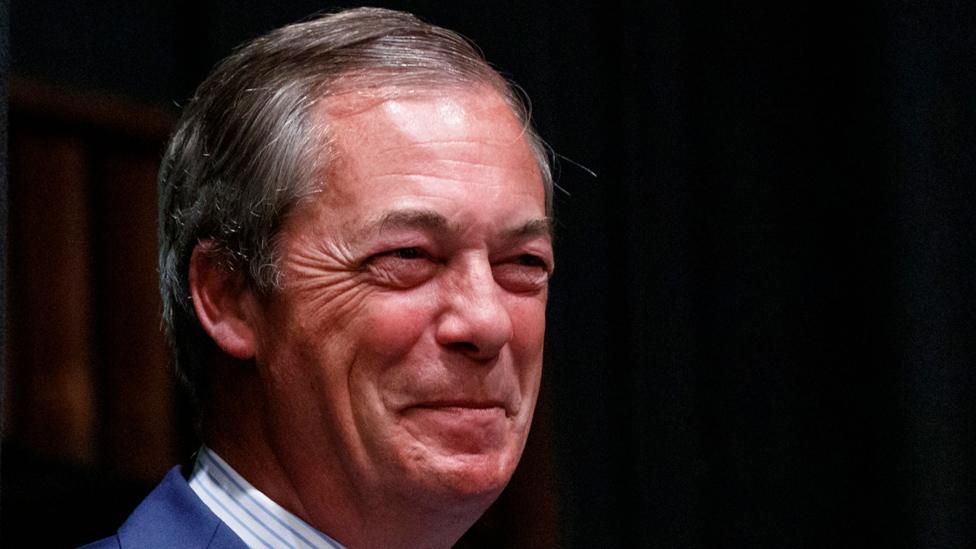Brexit : Second referendum could break deadlock - Hammond
- Published
- comments

The Brexit deadlock could be broken by a second referendum or a general election, the chancellor has said.
Philip Hammond told the BBC that if MPs could not find a way through the impasse, the decision could be handed "back to the people".
Brexit was delayed after Prime Minister Theresa May's deal was rejected three times by MPs.
Several candidates in the Tory leadership race have said they would consider leaving the EU without a deal.
Having failed to deliver Brexit, Prime Minister Theresa May was pressured by her own MPs into announcing her resignation.
One of the contenders to replace her as Tory leader, former Work and Pensions Secretary Esther McVey, told BBC's Breakfast the UK would "be out" of the EU by 31 October if she became prime minister.
This would apply whether or not any deal with the EU could be ratified by Parliament, she added.
Ms McVey said Mrs May's withdrawal agreement with the EU was "not good enough" for the UK, adding that the "door is open" for Brussels to make changes - which it has refused to do.
Mr Hammond, seen as one of the more pro-European members of the cabinet, was asked on BBC Radio 4's Today programme whether he would enter the contest to replace Mrs May.
He replied: "My position is this: I have a very clear view about these things and I want to make sure my view is represented in this contest."
He added: "Because my views are quite well known and have been expressed in quite uncompromising terms over a long period of time, I am, perhaps, quite a divisive figure.
"I would rather that the view I represent is presented in this contest by someone with, perhaps, a fresher face. As long as I feel the views I hold are properly represented, I won't feel the need to take part."

Theresa May announced she would step down as prime minister having failed to deliver Brexit
The UK had been due to leave the EU on 29 March, but Theresa May asked for an extension and the date was pushed back to 31 October .
The UK could leave before then if Parliament agrees a withdrawal agreement.
Some Tory leadership candidates - including Foreign Secretary Jeremy Hunt - have said they would seek to change the agreement.
However, the EU's chief Brexit negotiator Michel Barnier said the deal reached between the UK and the EU was "the only option" if the UK wanted to leave "in an orderly manner".
Ireland's Foreign Minister Simon Coveney told journalists the withdrawal agreement itself "isn't up for renegotiation" but added "that doesn't mean that the Brexit package can't change."
He said the EU would "try to accommodate" the UK if it wanted to change the political declaration - the part of the Brexit deal that outlines plans for the long-term future relationship between the UK and EU.
Mr Hammond said the public had voted to leave the EU and it would be "a stain on Parliament's reputation if, at the end, we have to admit we have been unable to agree how to discharge that mandate".
However, he added that "if we do get to the point where Parliament does admit that it cannot resolve the situation, then it will have to be remitted back to the people.
"I am not sure that a general election can resolve the question for the simple reason that both the main political parties are divided on the issues.
"My strong preference is for Parliament to resolve this, but if Parliament can't resolve it, then Parliament will have to decide how we remit it back to the people, whether it is in the form of a general election or a referendum."
The declared candidates in the Conservative leadership contest are:
Brexit minister James Cleverly
Environment Secretary Michael Gove
Health Secretary Matt Hancock
Foreign Secretary Jeremy Hunt
Home Secretary Sajid Javid
Former Foreign Secretary Boris Johnson
Former Leader of the House of Commons Andrea Leadsom
Housing minister Kit Malthouse
Former Work and Pensions Secretary Esther McVey
Former Brexit Secretary Dominic Raab
International Development Secretary Rory Stewart
- Published27 May 2019
